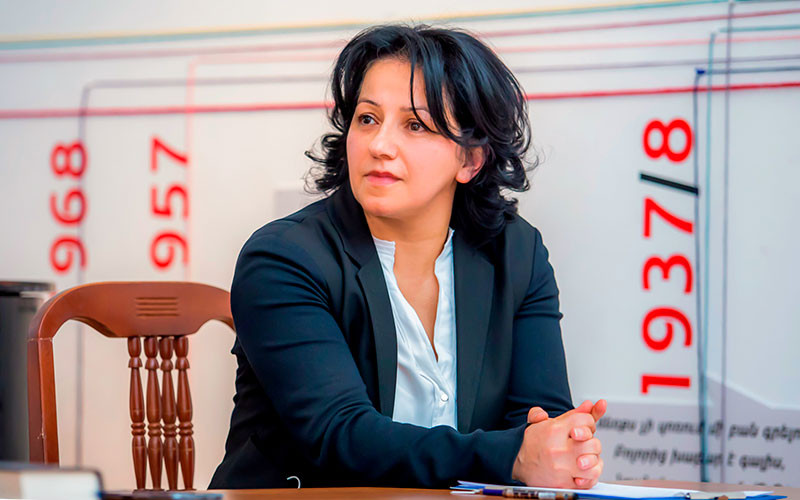
The Interview of General Director of Armenian Energy Agency Foundation with GEFF in Armenia
16 Mar 2022
Compared to 2020, the energy sector in Armenia has achieved more in 2021.
In an interview with GEFF in Armenia, Luiza Vardanyan, General Director of the Armenian Energy Agency Foundation, shared her insights into the new energy reality of Armenia and the way things need to be developed:
What are the overall achievements in the energy field in Armenia in 2021?
Compared to 2020, the energy sector in Armenia has achieved more in 2021.
From a policy-making point of view, the Government of Armenia approved the Energy Sector Development Strategic Programme until 2040. According to the Strategic Programme, the share of renewable resources, mainly solar, for energy production should be increased by up to 15% in total energy production. As a follow-up, the Renewable Energy and Energy Saving National Plan for 2022-2030 has also been developed. Another point worth mentioning is that the Government has continued with the liberalization process of the energy sector. Within the market liberalization framework, changes were carried out in the Energy Law of the Republic of Armenia, which provides policies and regulations for the whole energy sector in the country. The changes will come into force in 2022.
From operations and technical point of view, the first achievement was the upgrade of Armenian Nuclear Plant Unit 2 (Outage 2021) with the aim of maintaining the reliability and safe operation of this plant and the stability of the energy system. Another achievement is the operation of the new Yerevan Thermal Power Plant (combined steam cycle) with a 250 MW positioning power capacity.
The last achievement for the sector worth highlighting is a contract between the Government of Armenia and Masdar, one of the world’s leading renewable energy companies, for the construction of a solar power plant with a positioning power capacity of 200 MW.
What actions need to be undertaken in connection with the UN Climate Change Conference in Glasgow in 2022 to tackle the main challenges and make systematic changes and improvements towards achieving the goals set?
Experts say that COP 26 in Glasgow was more productive and efficient in terms of reaching a consensus on the further steps to address climate change. Adaptation, mitigation, and finance are the three main factors that should be strengthened and balanced by all parties: governments, private and public sectors, CSOs, local communities, etc.
To my understanding, a strategy on how to work together and one that puts every part in place should be developed first or the previous strategy should be reviewed. Another essential document should outline the transition to net-zero and then monitoring and reporting norms must be put in place, which is acceptable and available to all countries. Finally, the financial industry must be prepared, if it isn’t already, to support the implementation of green projects. Financing green or greening finance − both of these!
Locally, Armenia has its own Nationally Determined Contribution 2021-2030 plan in connection with the Paris Agreement. The Government has approved the Climate Change National Adaptation Plan and the Action Plan for 2021-2025. Armenia should work on the taxonomy and should actively participate in International Consortium meetings as well as to adapt related international regulations as needed and if possible.
How do you see the role of gender impact investments in Armenia?
For me, gender-related topics are significant, not only because I’m a woman and hold a leading position, but because Armenia has traditionally been a society dominated by men.
Investments mean business, investments mean private sector development as well as making and maintaining partnerships, decision making, etc. During the last decade, many projects have been implemented to improve the business skills of women, improve their financial skills, and create more opportunities for gender-related investment by developing financial products. Though changes are taking place, more time is needed owing to the complexity of it all.
To my understanding, thorough research should be conducted regularly to understand the demand, field, and impact in Armenia.





